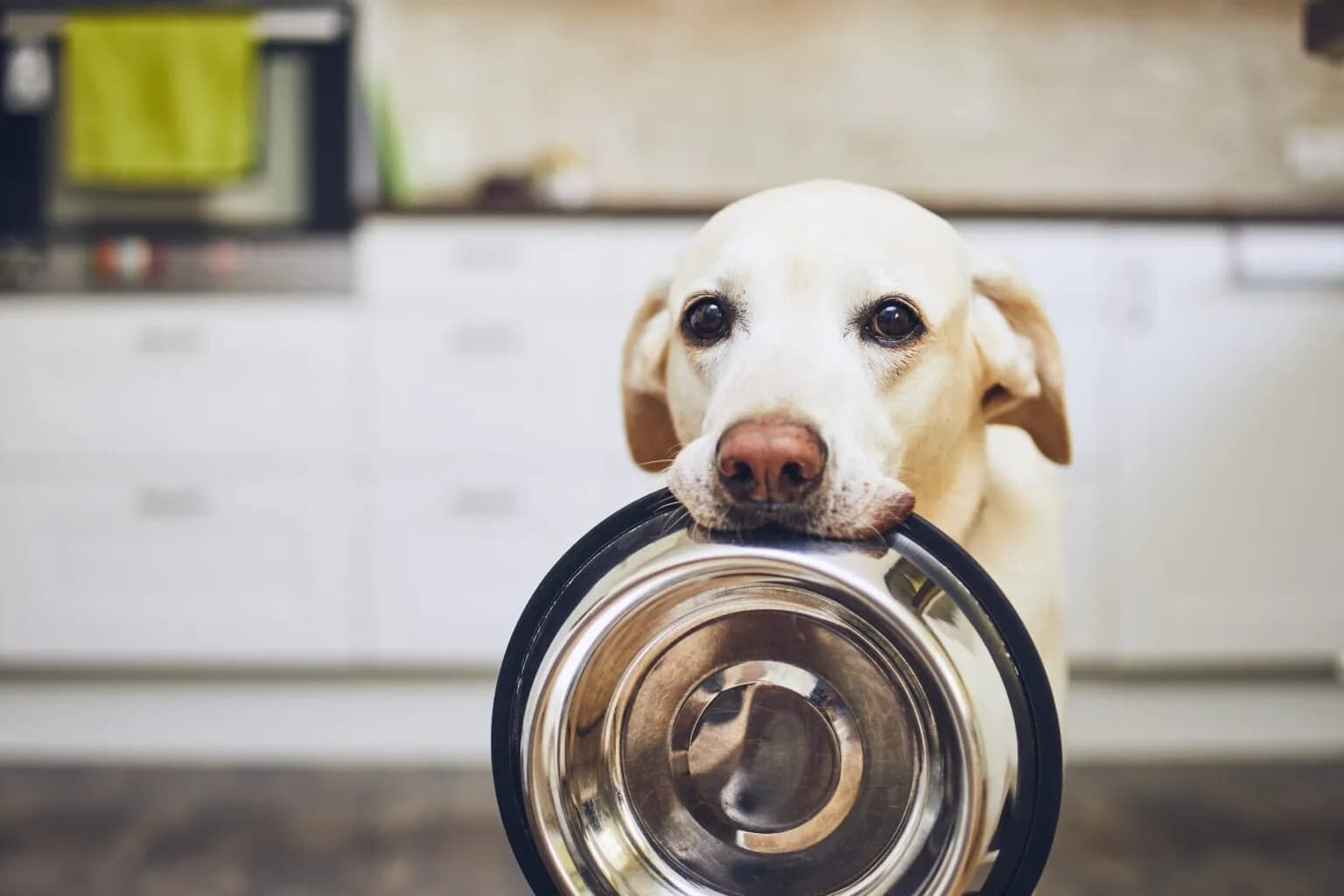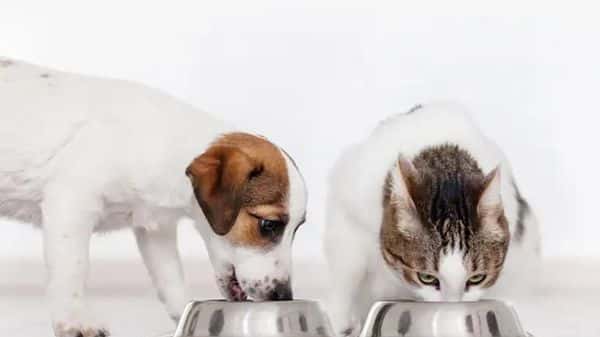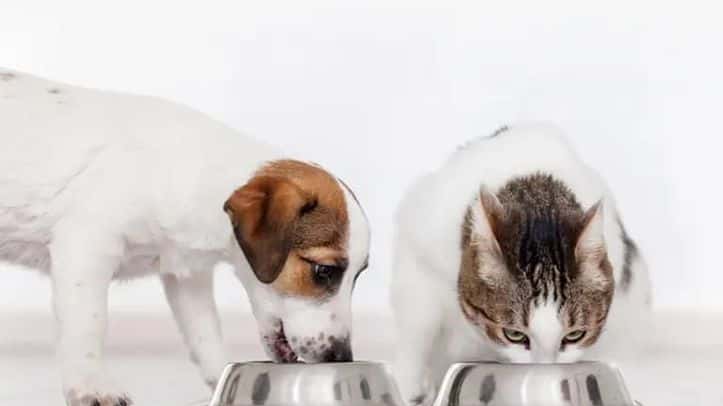
Tips
21 Foods to Feed or Avoid: A Comprehensive Guide to Keeping Your Dog Healthy and Happy
3.16.2022
As dog lovers, we know it’s nearly impossible to look into those big brown eyes and say “no.” The food we love can sometimes be harmful or dangerous for dogs. Your pup’s nutritional needs can be very different from yours, so it’s important to be careful with what you feed your dog.
Apples: The fruit is fine, fresh or frozen. Just remove any seeds, which can be toxic in large amounts.
Avocados: Never. A chemical called persin is present in all parts of the peel, fruit, pit and plant that can cause vomiting and diarrhea.
Bananas: Chunks of the fruit are fine for dogs in moderation. (They are high in sugar, so don’t go bananas.) But remove the peel —it is difficult to digest and could block a dog’s digestive tract.
Berries: Strawberries, blueberries and other berries are good treats for dogs in moderation. (Avoid cherries unless you remove the pits, which contain cyanide and can be choking hazards.)
Bread: Safe, but bread has no nutritional value for dogs, according to the American Kennel Club dog food safety guidelines. If you do offer bread, avoid nuts, seeds, seasonings, raisins and chemical preservatives.
Broccoli: Dogs can eat small amounts of broccoli, raw or cooked, without oils or seasonings. However, large amounts can cause stomach irritation.
Carrots, celery and other garden veggies: Many raw vegetables are safe in small portions, like carrots, celery, green beans, peas, cucumbers, mild bell peppers and spinach. Serve fresh or frozen. Wash to remove pesticides and cut large veggies to prevent choking. The exceptions: avoid mushrooms, hot peppers and asparagus, and never let your dog near onions and garlic. (See below.)
Cheese and dairy: Cheese can be a fine treat for dogs – just avoid providing a large dose of fat. Either offer tiny portions or opt for lower-fat cheeses like cottage cheese or mozzarella. Plain yogurt is fine, but yogurt with artificial sweeteners can be toxic. Other dairy can cause stomach upset.
Chocolate and cocoa: Never. Chocolate can damage a dog’s vital organs and nervous system. In general, the darker the chocolate, the higher the toxicity. Chocolate ice cream combines the danger of cacao with the indigestibility of dairy.
Corn: Corn kernels are safe for dogs to eat, but corn cobs can cause deadly intestinal blockage and choking hazards, so make sure to only feed the kernels.
Eggs: Fully cooked eggs are safe in moderation for dogs. Avoid sharing undercooked egg whites, which can cause a nutrient deficiency.
Fish: Fish is full of healthy fats for dogs. Make sure to fully cook it and pick out all bones. Or play it safe and explore some of our freeze-dried salmon dog food and treats. We’ve got freeze-dried minnow treats, too!
Grapes/Raisins: Never. Life-threatening kidney damage can result from allowing dogs to sample grapes or raisins. Keep grapes well out of reach.
Ice cream: Rarely. Ice cream is high in fat and sugar and not recommended. It can also contain ingredients that are harmful to dogs, including nuts, added sweeteners and chocolate. Its better to freeze a healthier food, like fruits or veggies, for a hot weather treat. Or better yet, try these pup-sicles you can make at home with a couple ingredients including healthy dog treats.
Nuts: Depends. Different nuts have different health effects in dogs. Macadamia nuts are highly poisonous to dogs; cashews and peanuts are fine in moderation. But the American Kennel Club warns that even “safe” nuts can cause irritation and pancreatitis due to their high fat content.
Onions/Garlic: Never. These can destroy red blood cells and damage kidneys in dogs. Also avoid other plants in this family, including leeks, scallions, chives and shallots.
Oranges/Citrus: A section or two of orange occasionally should be fine. However, citrus oils in fruit peels can cause irritation and eating the peels can cause blockages, so wolfing down whole fruits is a no-no.
Popcorn: Unsalted, air-popped popcorn is fine. Avoid added butter, oil and salt and remove any unpopped kernels.
Shrimp: Feel free to offer one or two cooked shrimp with no shell to your dog. Uncooked shrimp is not safe and should be avoided.
Tomatoes: Be Cautious. Green tomatoes and plant parts (even plants in your garden) can be poisonous to dogs. Tomatoes that are completely ripe can be safe in small amounts for dogs. The AKC suggests skipping all tomatoes “just to be safe.”
Watermelon: Watermelon can be a great summer treat for dogs—just make sure you remove all rinds and seeds (which can cause an intestinal blockage).
Other kitchen dangers to your dog
Garbage: Keep dogs away from trash cans. Overripe fruit, rotting meat, bones, seeds, pits and shells can contain harmful bacteria, toxic molds, sharp edges and dangerous ingredients.
Seasonings: Seasonings like garlic, mustard, cinnamon and nutmeg that are harmless to humans can hurt dogs in larger quantities. Keep curious noses away from spice bottles.
Alcohol: Dogs should not consume alcohol. Serious poisoning and long-term harm can result. This includes human beverages and the alcohols produced by yeast dough and overripe fruit.
Fat: Whether you’re trimming fat from a roast or preparing high-fat snacks, keep it out of the food bowl. Dogs that eat too much fat can suffer from weight gain and pancreatitis. With a proper protein diet, dogs will get enough fats and oils from their regular food.
Salt: Salt can increase water retention in dogs, which can be fatal for dogs that are prone to heart disease. It can also cause vomiting, diarrhea, tremors and seizures.
Sugar substitutes: Avoid artificial sweeteners. Xylitol, in particular, can cause liver damage and seizures.
We’ve created our raw dog food and treats to follow nature’s example with a protein-forward diet. Our goal is to provide the essential nutrients your pet needs without any added fillers, gluten, grains, or artificial preservatives. Okay, what’s life without the occasional treat—in moderation? (Moderation means we humans promise to keep human food to 10 percent or less of our dog’s daily calorie intake.) For those times when the urge to share becomes irresistible or when your dog gets into something they shouldn’t, we answer some of the most-asked questions about “table food” for our canine companions.
If you suspect your pet has ingested something harmful, contact your veterinarian or Pet Poison Control at ASPCA, (888) 426-4435.
Feeding dogs human food is unnecessary and sometimes unsafe. Feeding certain human food to dogs can be fine, but not optimal. Dogs’ nutritional needs are very different from those of humans, and a “balanced” human diet of mainly vegetables and grains would not replicate the diet that canine ancestors would have sought out in the wild. Vital Essentials is naturally formulated to meet all our pets’ needs, in the ratios that benefit them.
For more information on Vital Essentials and our full product line, follow us on TikTok and Instagram. And if you have any questions, be sure to check out our FAQ page for answers. Together, we can ensure your pet gets the proper nutrition they deserve.





